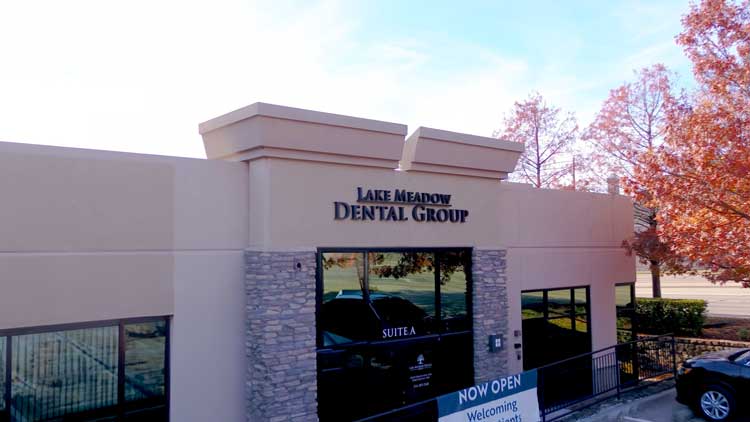Snoring is caused by the relaxing of the muscles and soft tissues in the throat and mouth, making the air passage smaller and causing them to vibrate loudly when air rushes past. When it does get through, it moves over the soft tissues in the mouth and throat causing a vibration that results in the loud, obnoxious snoring sound. Snoring can also result from the combination of several factors:
– Excess body weight
– Alcohol consumption
– Certain sleep aides or sedatives
– Sleeping on your back
– Large neck size
– Obstructive Sleep Apnea (OSA)
Sleep apnea is a condition in which your airways collapse or become blocked and breathing stops periodically during sleep. This can occur as often as 20-30 times per hour lasting for a few seconds to several minutes. Each time your breathing pauses in your sleep, the resulting lack of oxygen alerts your brain, which temporarily awakens you to restart proper breathing. Since the time spent awake is so brief, most people are not aware of it. Many believe they are getting a good night’s sleep when, in fact, they are not. The constant disruptive wake-sleep cycle prevents those with sleep apnea from achieving deep REM sleep causing constant drowsy feelings during the day.
Often, the person with sleep apnea is unaware of their situation as it occurs while they are sleeping. It is often a loved one who recognizes the condition. The following symptoms can indicate the presence of sleep apnea.
– Insomnia or difficulty sleeping
– Loud snoring at night
– Waking up at night short of breath
– Snorting or choking sounds during the night
– Headaches upon waking in the morning
– Falling asleep unintentionally during the day
– Extreme drowsiness throughout the day
– Lack of energy, lethargy
– Irritability
– Lack of concentration
– Depression
– Hypertension
– Frequent night time urination
Anyone — regardless of gender or age — can suffer from sleep apnea. However, these are the more common risk factors:
– More common in males than females
– More common in older adults (40+) than younger adults or children
– Obesity
– Smoking
– Drinking alcohol
– Use of sedatives or tranquilizers
– Family history
Central Sleep Apnea strikes most often in people with heart disorders, neuromuscular disorders, strokes, or brain tumors.
Sleep apnea is considered a serious medical problem and if left untreated can lead to:
– High blood pressure
– Diabetes
– Increased risk of heart attack and stroke
– Increased risk or worsening of heart failure
– Increased risk to experience arrhythmias or irregular heartbeats
-Obesity
– Increased risks with sedation anesthesia
– Increased complications with medication or surgery
– Depression and negative quality of life
The ongoing state of fatigue caused by sleep apnea can lead to problems at work or school, as well as danger when driving or operating heavy machinery. If you know or suspect you suffer from sleep apnea, let your family doctor know before taking prescribed medication or having surgery.
Treatments for sleep apnea depend on the severity of each individual case and the type of apnea. Basic treatments begin with patients making behavioral changes:
– Lose weight
– Stop smoking
– Decrease alcoholic beverages
– Sleep on their sides instead of on their backs
If these changes do not improve the sleep apnea, patients need a professional evaluation to consider a custom MAD oral device that can be used to position the mouth in such a way that prevents throat blockage.
CPAP Continuous Positive Airway Pressure is one of the most successful treatments for sleep apnea. A mask is worn over the nose while you sleep. It gently forces air through the nasal passages and throat to keep the airways fully open for normal breathing and healthy, restful sleep. You would be referred to your private doctor to obtain an evaluation for a CPAP machine.
In more severe cases, surgery or medical management may be the best option to treat sleep apnea. This might involve correction of a deviated nasal septum, nasal polyps, chronic allergies, enlarged tonsils and adenoids.
Contact our practice for an evaluation. We will refer you to a sleep apnea specialist if that is best for you. The specialist may recommend a sleep study to diagnose the precise extent of the problem, and can prescribe appropriate treatment.
For more information on snoring prevention & sleep apnea, read our blog on Trouble Sleeping? Talk to Your Dental Team.

Our team has delivered outstanding dental care in Lake Highlands for over 35 years. We are committed to providing our community with safe, gentle, high-quality dental care.
Should you have any questions or concerns regarding your dental care, we are more than happy to discuss how you can achieve a beautiful and healthy smile.
As a top dentist in Lake Highlands, we have helped hundreds of families achieve their oral health goals and are eager to help you and your family do the same.
Lake Meadow Dental Group © 2024 | All Rights Reserved